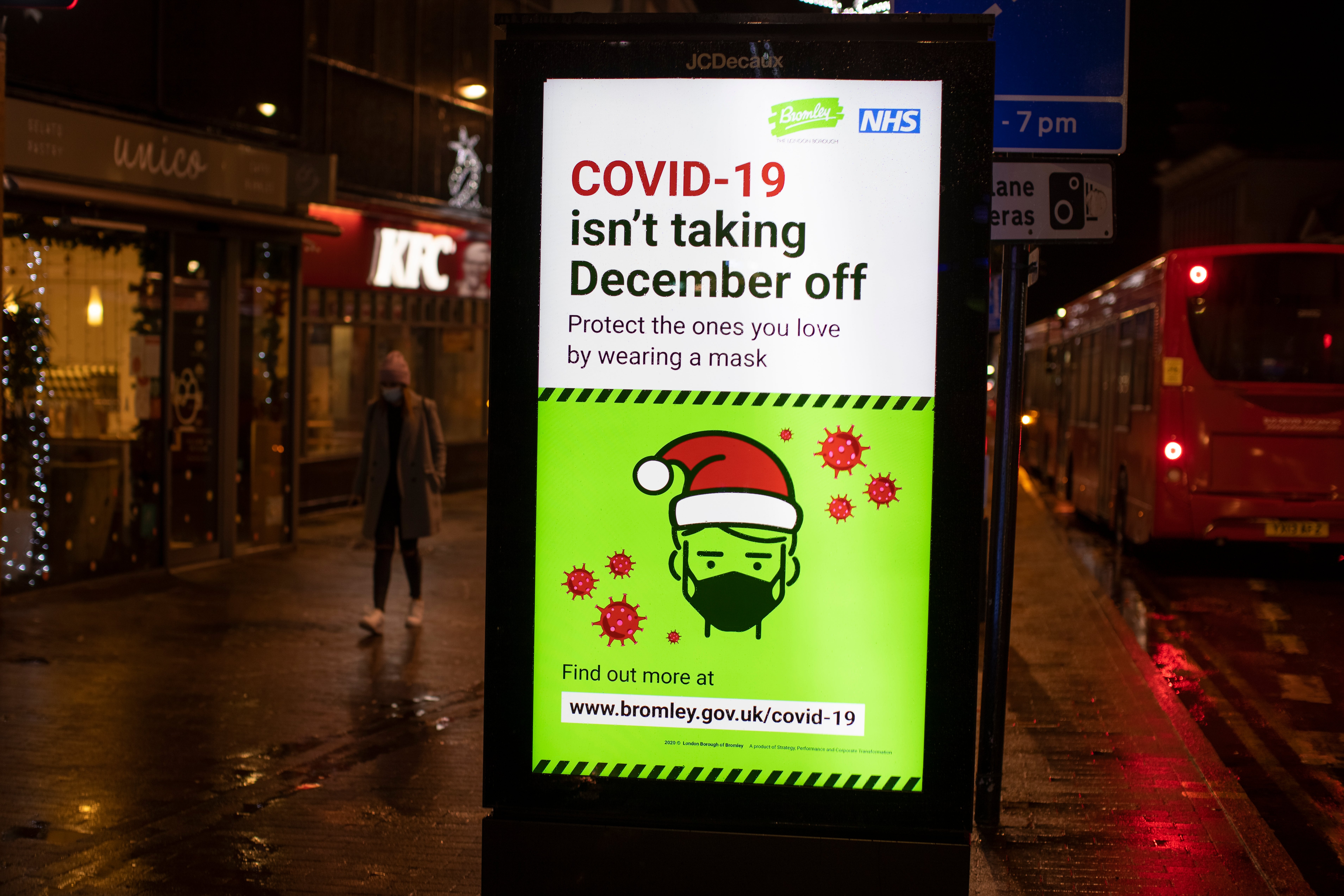How much damage will the new lockdowns inflict on the UK economy?
Tougher restrictions around Britain will inevitably delay recovery, says Hamish McRae


The recovery will be postponed. The most important impact of the new and severe lockdowns across London and southeast England will be the human one. But there will be serious economic consequences too, and economic misery will add to the human toll in all sorts of ways. What can we say about that?
The starting point is very simple. There can be no sustained recovery until the most vulnerable people have been vaccinated. Until that death rate goes down, there will be no general reopening of the hospitality and entertainment industries that have been most seriously hit. We will have a first quarter of the year under varying levels of restrictions, the effects of which can be only partly mitigated by government action. Whether this turns out to be a quarter of negative growth or not, this will feel like a double-dip recession. The businesses that have boomed through the past year will continue to do well, and those that have shattered will be trying to hang on somehow.
On the other hand we know that when restrictions are lifted the economy races back. We saw that in the summer with the “Eat Out to Help Out” project, and they are seeing it now in Wuhan, which after months of total lockdown has become party central. So we can be very confident that the recovery, when it is allowed to come, will be a strong one.
That leads to two questions. How much damage will be done by this new lockdown? And how delayed is the recovery?
It is difficult to be optimistic about the first. Businesses have learnt a great deal about adjusting to the new restrictions, finding ways of keeping some activity going despite the curbs, just as many of us have managed to keep working from home. The evidence of the past month or so has been that there has been a much less severe dip in activity than there had been in the spring. But now that may change.
The longer and fiercer the clampdown, coming at what would be the busiest week in the year for both the hospitality and the high street, the greater the damage. There will be some shuttered businesses that would have reopened that will not now be able to do so. We won’t know the scale of the damage until the summer, because you don’t know a business will stay shut until it does so.
The delay to the recovery is easier to calculate, and have some optimism about. There was always going to be slow recovery through the first quarter of this year, even without this new wave of the virus. Restrictions were going to be lifted slowly, but only steadily. A crude way of looking at it would be to say that things would be pretty much back to normal by Easter – bearing in mind that the new normal would be somewhat different from the old normal. GDP would still be down from its peak and debts just about everywhere would be higher than in pre-Covid days. But things would feel familiar: it would feel like a “normal” recession rather than something beyond all our experience.
Now we know that getting back to the “new normal” will take longer. My gut instinct is that the new curbs have delayed the recovery by two to three months. There will be growth coming back by Easter, but it won’t feel normal until the summer for two reasons.
One will be that while Covid deaths will have fallen to very low levels, some restrictions on our activities will remain until the vaccines are universally available and distributed. The other will be that the financial damage from these new lockdowns will scar both individuals and businesses. There will be, so-to-speak, a couple of months of wound-licking as both sort out their finances. Household savings have soared since the lockdowns but surveys done by the Bank of England suggest that people will be reluctant to spend those savings once they are allowed to do so. And of course while aggregate savings are up, many people, particularly the self-employed, have seen theirs wiped out.
My worry is that the people who have been able to save money won’t want to spend it, while those that have not been able to save won’t have the money to spend anyway. So an uneven, bumpy recovery coming through a couple of months later than hoped for. Still, at a time like this, with a bleak Christmas ahead, waiting a bit longer for the new normal does not seem too dreadful. The trudge continues, but we are three-quarters of the way through it.



Join our commenting forum
Join thought-provoking conversations, follow other Independent readers and see their replies
0Comments